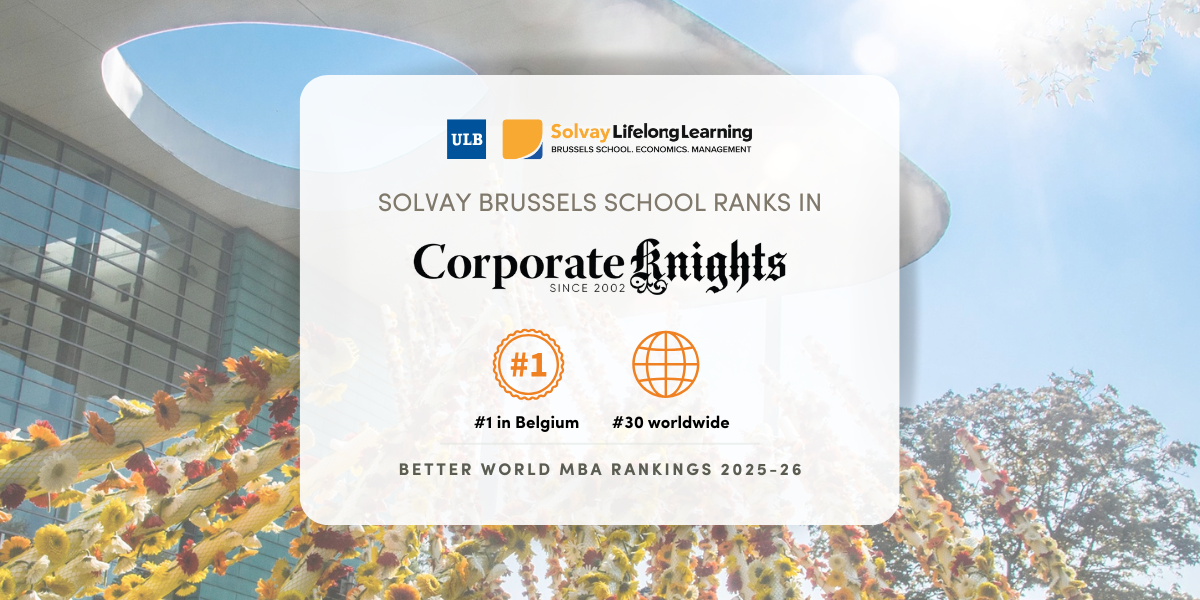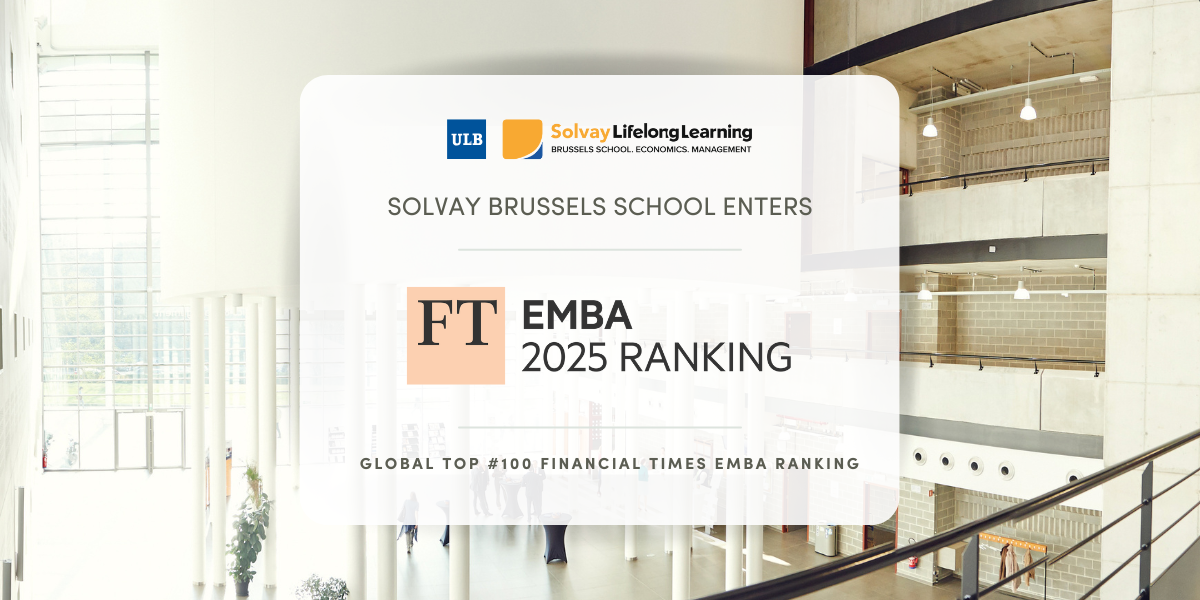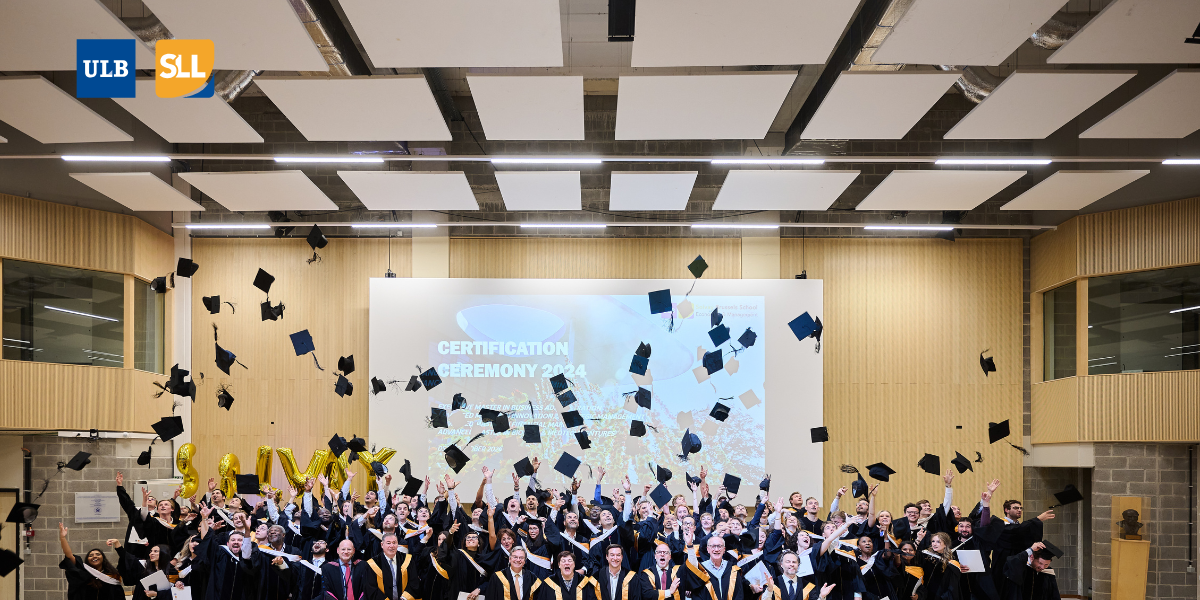Learn more about us.
Elke Robbrecht: From the Nuclear Age to Digital Energy
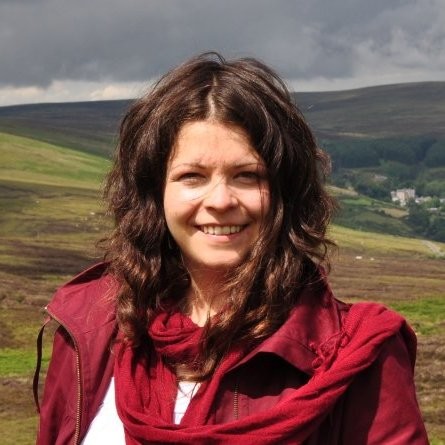
Candice Leblanc |Author
Journaliste indépendante.
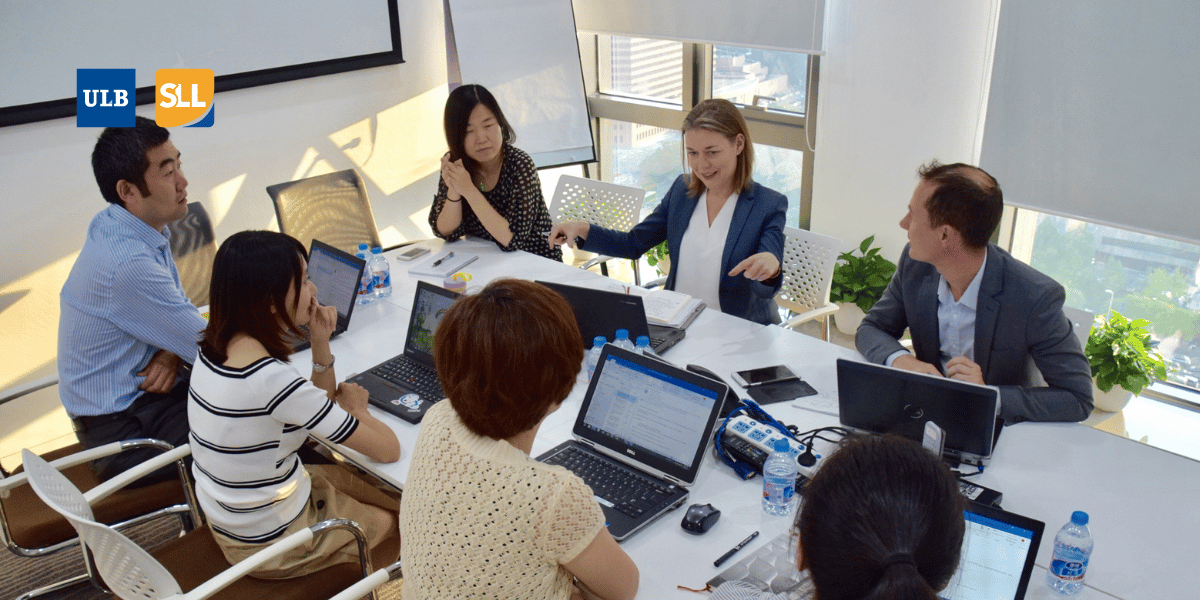
Stay connected
Never miss the latest insights, blogs and news. Subscribe to our newsletter.
A civil engineer by training, Elke Robbrecht first began working in energy - a sector she finds fascinating - at Tractebel-Suez. An Executive MBA at the Solvay Brussels School Lifelong Learning then enabled her to take her career in a new direction – business and finance. Today, she has successfully combined her technical knowledge and her commercial and financial expertise to lend support to the rapidly changing energy sector.
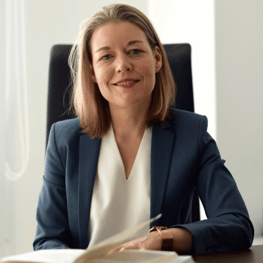
Pictures: Sofie Devoldere
Electrical energy is the foundation of our civilisation. Everyone needs it.
Elke Robbrecht explains:
It’s a sector that’s constantly evolving. At the start of my career, electricity was mainly produced in large gas, nuclear and coal power plants. Today, we are seeing a triple energy (r)evolution: a decarbonisation of the sector, with renewable energies being developed at unprecedented speed; decentralisation with a movement towards smaller, more local electricity generators that are closer to people; growing digitisation both in terms of technology and in services to customers.
All of which Elke finds thrilling – having successfully combined her technical knowledge and her commercial and financial expertise to lend support to this rapidly changing sector.
Early choices
Let’s take a look back. In 1995, excelling at maths and attracted by creative environments, Elke passed entrance exams in architectural engineering and civil engineering.
At the start, my preference was for the architectural side of things but I was concerned about limiting myself so early on to a specific profession. When you’re 18 it’s not easy to be sure what you want to do with the rest of your life!
And it was this foresight that made her opt for civil engineering. As a young woman she enjoyed student life and became treasurer of the VUB Cercle Polytechnique. But while her fellow students were keen for her to become president, she received a better offer from one of her teachers: a Socrates exchange with the National Institute of Applied Sciences in Lyon. The choice was easy! "It was a great year! Getting to know students from all over the world gave me a taste for travel and intercultural exchange."
Even if this had to be put on hold for a while…
A female engineer in a man’s world
Elke Robbrecht’s final year dissertation focused on software used in an energy company. And once she had graduated, the company took her on. But after a year or two she began to feel bored.
"My male colleagues were being sent out in the field but I was stuck in an office doing programming! I wanted to experience other things. During my studies, I hadn’t done any courses on management, human resources, finance etc. I found these subject interesting so I did a postgraduate evening course."
Although this training may not have been sufficient for her to change jobs, it did confirm her interest in the world of business. So Elke then thought about doing an Executive MBA, but her superiors believed that "real engineers don’t need that!" And when a female colleague told her that it had taken ten years before she was sent on a mission, it was the final straw: "If yo can’t flourish and be supported in what you do, you must have the courage to leave to do what you want to do! So I took a career break to do my MBA."
A giant leap forward
At Solvay Brussels School, Elke Robbrecht found the economics, managerial accounting and innovation courses particularly stimulating. "It’s the concrete and inventive side of things that I find interesting: identifying problems, finding solutions and seeing their impact in real life."
At the SBS-EM, she also rediscovered the multicultural environment she so much enjoyed.
Discovering the different backgrounds of the other students really opened my eyes to the many different career opportunities. Above all, the MBA enabled me to make the professional leap I needed, to move from a technical profession to a commercial and financial career.
Interestingly, when Elke went back to see her former employer she was greeted by a young man from HR who told her "you need three things to become a manager with us: be an engineer, have grey hair and… be a man." So when General Electric offered her the job she'd applied for "I didn’t hesitate for a second!".
On the road
The young woman then joined one of the company’s training programmes. For two and a half years she learned the ropes in different subsidiaries. She had wanted to travel… and that’s what she did! She began with six months at Belfort where she sold gas turbines to industrial clients. Then she went to the vast, historic Edison site at Schenectady in New York State, where she learned in detail how turbines operate and her initial training stood her in good stead! Next she was sent to Prague to study wind turbine and biogas potential in Eastern Europe.
I ended up in Milan where I negotiated turbine maintenance contracts. General Electric was a great place to learn and I was given the freedom to learn out in the field. The company is like a real family. However, at that time, the only jobs I could move on into were rather compartmentalised and I like having a good overview of things…
An airport interview
It was through an SBS-EM Alumnus that Elke was able to find an opportunity that better fitted her expectations. In 2007, she sent her CV to an employee at Electrabel who passed it around. Bingo! The company was indeed looking for someone to carry out a market analysis for Italy."My future manager had a meeting in the Italian capital, so I jumped on a plane and met him at Rome airport. And that’s where I did my job interview!"
She was given the post of market analyst and returned to Brussels. After the Italian market, Bulgaria and Romania soon followed. It was a very busy tim . "Sometimes, I was travelling so much that I barely had time to return to Brussels to touch base before setting off again!"
Mergers and overview
Before long, Suez, which owns Electrabel, merged with Gaz de France (GDF). A new post was created for the
new group in Paris: electricity product on controller covering Europe and all technologies (nuclear, gas, wind, coal turbines, etc).
There were financial controllers in each country but the data reported needed to be consolidated and its reliability checked, key technical and financial performance indicators had to be defined and harmonised so that the system could be rolled out across Europe. It was a genuinely cross-functional task. The technical skills I had acquired during my studies and with General Electric and the financial knowledge I had gained from my Executive MBA were all coming together at last. It was the perfect post for entering the world of finance and my managers gave me a lot of support.
Paris-Beijing
Elke Robbrecht thrived in this position, but in 2012 the European energy market went into decline; a number of the group’s plants had to be closed down. There were painful decisions… In 2014, the CEO of GDF Suez’s brand new Business Unit (BU) offered her the position of CFO in Beijing.
It was like a start-up in a market with enormous potential, but difficult to penetrate. It was a project that attracted me straight away. After so many years within the group, I wanted to be closer to the operational side of things, where the real business happens. Working in a BU you find out about the operational and administrative difficulties particular to each country, but you also experience moments of collective euphoria when you win a new project!
A country of contrasts
For Elke Robbrecht, China was a completely new country. It was different from anything she had known before, at all levels.
Beijing is a city with a lot of expats and where everything is available. The language is a bit of a hurdle and takes a long time to learn but people are so nice that it didn’t really cause a problem. In the beginning I didn’t feel a sense of culture shock. It was only gradually that the differences became more obvious… China is a country of contrasts, at all levels. It merges an ancient traditional culture with a very capitalist world.
In terms of business, you have to learn and adapt to local custom. The CFO and her team are assisted in this by their Chinese colleagues.
Having local partners who know how things are done is essential. I like the way the Chinese do business. These are shrewd people who work with a lot of respect. You can’t lose face or make others lose face. In Europe, we analyse and prepare a great deal upstream. Here people go largely on instinct, on feeling. However, before doing business with you, they first have to get to know you and learn to trust you… and this can take months or even years! But once that trust is established, they are keen to do business. They’re not afraid of bringing a product that isn’t fully developed on to the market or even a construction site that’s only finalised on paper. At worst, if things don’t work out, they stop and they find a solution. It’s somewhat disconcerting for a westerner but sometimes you have to accept that you can’t understand it all… and, at the end of the day, it does work! I’m delighted to be working for Engie in such a dynamic environment!
Stay connected
Never miss the latest insights, blogs and news. Subscribe to our newsletter.

Newsletter subscription
Never miss the latest insights, blogs and news
Subscribe to our newsletter and never miss the latest insights, events and blogs.
What other people like
Related blogs
Our Editorial Team brings you the latest in blog posts covering business, finance, sustainability, and programme insights from Solvay Lifelong Learning!
6/11/25
Our Editorial Team brings you the latest in blog posts covering business, finance, sustainability, and programme insights from Solvay Lifelong Learning!
13/10/25
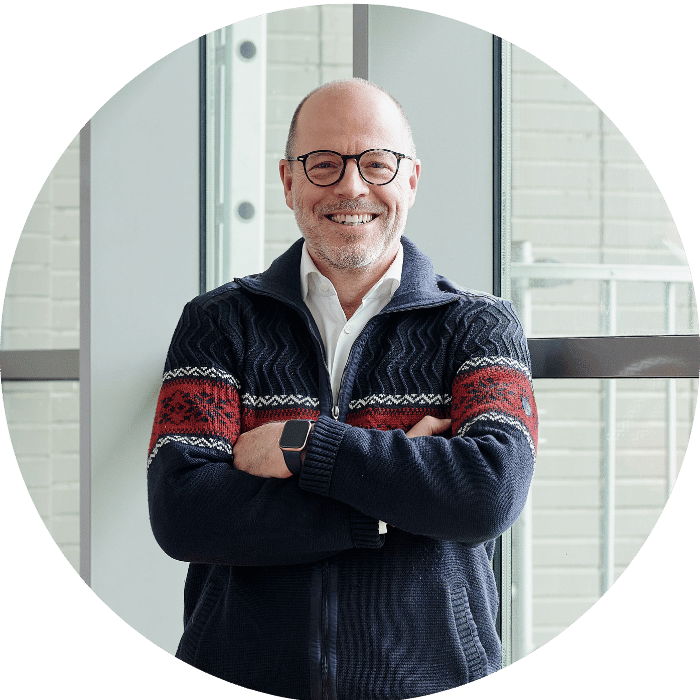
Bruno is Senior Advisor and Ambassador for Innovation at EY and the Academic Director of the Solvay EMBA and Accelerated Management Programme. He is an expert in strategy, Entrepreneurship and Innovation.
9/04/25
